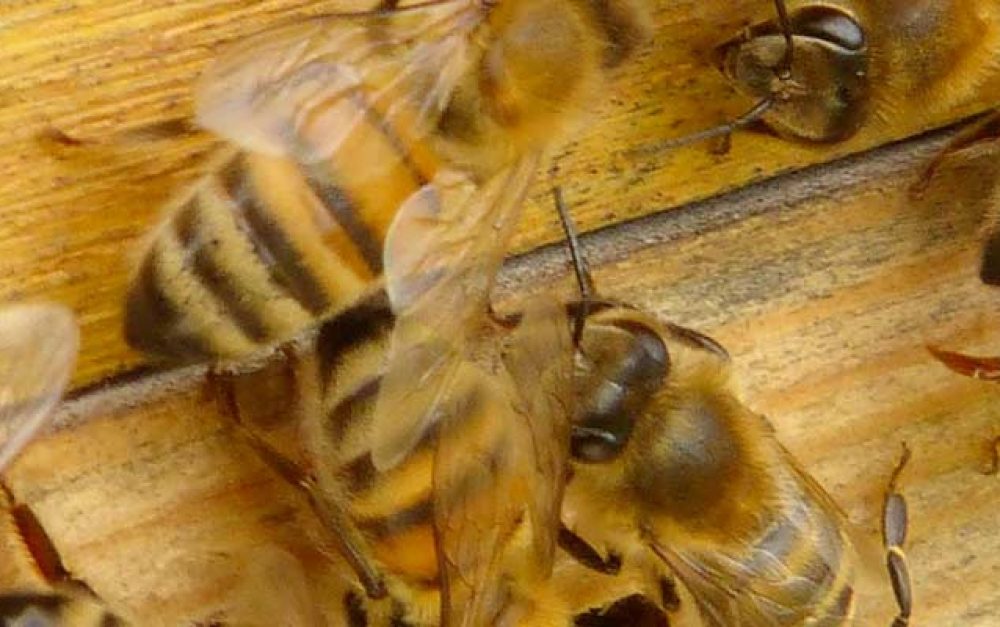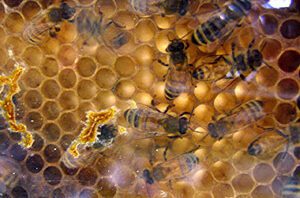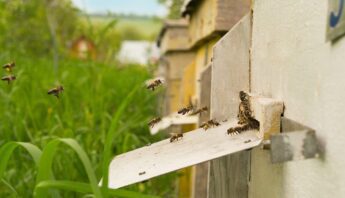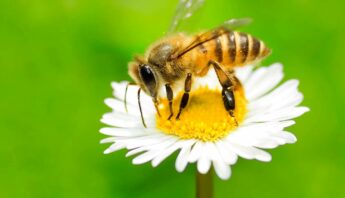For Immediate Release
August 27, 2015
Contact: Paul Towers, 916-216-1082, ptowers@panna.org
Washington, DC – In advance of tomorrow’s deadline, eleven food, beekeeping and farm organizations submitted a letter to EPA today urging the agency to refocus its attention — and new policies — on the addressing the impact of pesticide seed coatings on bees.
The groups were responding to the agency’s proposed rules to protect honey bees from pesticide sprays, or “foliar applications.” This rule fails to address the on-the-ground realities of how bees and other pollinators most commonly come into contact with harmful pesticides. In the letter, groups state:
We appreciate EPA’s intent with the proposed policy and encourage the agency to focus additional attention and resources on the pressing issues of systemic pesticide seed treatments. Seed treatments on conventional corn, soy and other crops result in the greatest use, exposure and harm to bees from pollinator-harming pesticides. Protecting bees and other pollinators will protect the prosperity and health of our food and farming system.
The letter signatories include groups from across the country: Hawai’i SEED, Kansas Rural Center, Kaua’i Beekeepers Association, National Family Farm Coalition, Olympia Beekeepers Association, Pesticide Action Network North America, Pollinate Minnesota, Pollinator Friendly Alliance of Stillwater, San Diego Beekeeping Society, Washington State Beekeepers Association, and Women, Food and Agriculture Network.
In addition, PAN and partner organizations Beyond Pesticides, Friends of the Earth and TakePart submitted over 115,000 individual comments urging the agency to better protect bees from harmful pesticides — specifically, neonicotinoid-coated seeds.
Marcia Ishii-Eiteman, PhD, senior scientist for PAN, released the following statement to underscore these points:
“EPA has kept its head in the sand when it comes to pesticide seed coatings. Rather than focusing new rules on the biggest threat to bees, they’re putting time and energy into a problem that has largely already been solved by beekeepers and neighboring farmers. Seed coatings are pervasive and persistent, posing an ongoing threat to the health and productivity of bees, and, in most cases, they present very little real benefit to farmers.”
###
Pesticide Action Network North America (PAN North America, or PANNA) works to replace the use of hazardous pesticides with ecologically sound and socially just alternatives. As one of five PAN Regional Centers worldwide, we link local and international consumer, labor, health, environment and agriculture groups into an international citizens’ action network. This network challenges the global proliferation of pesticides, defends basic rights to health and environmental quality, and works to ensure the transition to a just and viable society.







